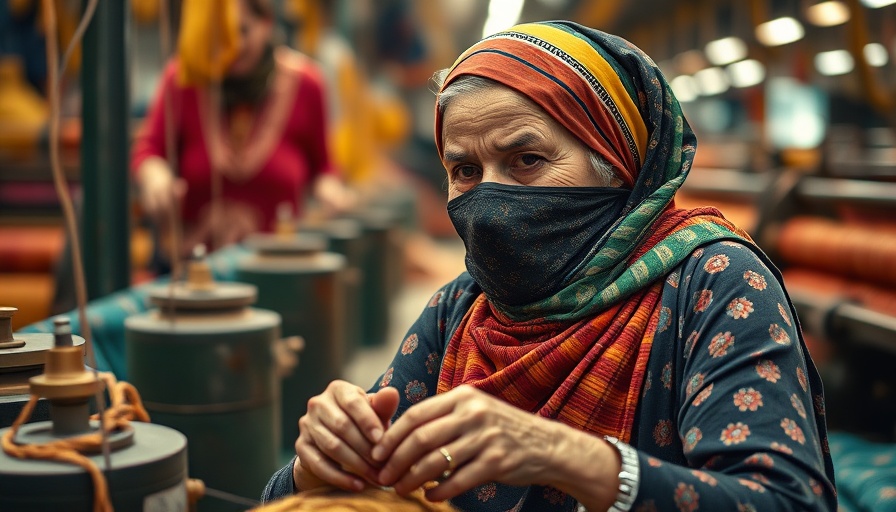
Bangladesh's Textile Waste Crisis: A Growing Concern
As global awareness shifts toward sustainability, the fashion industry's waste crisis in Bangladesh is coming to the forefront. The country stands as the world's second-largest apparel producer but grapples with the staggering reality of generating around 577,000 metric tons of textile waste annually—a figure that cannot be ignored. With the environment taking a hit and increasing regulations from global markets, it becomes imperative for Bangladesh to rethink its waste management strategies.
A Call for Sustainable Solutions
Currently, Bangladesh recycles a minimal percentage of its textile waste, with the bulk being either exported or discarded in harmful ways. Recent studies highlight a need for Bangladesh to *expand its recycling capabilities* to meet the surging global demand for sustainable practices, particularly as industry trends point toward a recycling market projected to be worth US$9.4 billion by 2027.
The European Union's new regulations, which require sustainable practices such as reduced environmental harm from textiles, send a clear message—Bangladesh must innovate. Experts like Patrick Schröder from Chatham House have voiced concerns that failing to adapt could challenge millions of jobs dependent on the fashion and textile sector.
The Informal Waste Economy
Notably, the waste management landscape in Bangladesh is largely informal and opaque. Thousands of individuals operate unregistered workshops that process textile scraps—known locally as jhut. Most of this waste is converted into low-value products, with significant portions left untreated, leading to pressing pollution issues including clogged waterways and toxic emissions from incinerated materials.
The Workers Behind the Process
Behind the scenes, several tens of thousands of workers, predominantly women, spend countless hours sorting through discarded materials with little to no regard for safety or fair wages. Organizations such as UNICEF have highlighted the harsh working conditions that include inadequate drinking water, no paid sick leave, and lack of protective measures. This poses an additional ethical challenge when considering the push towards environmentally friendly practices.
Looking Ahead: The Road to Sustainable Fashion
As the global demand for eco-friendly products grows, Bangladesh’s ability to pivot its practices holds substantial weight. Collaborations among brands, suppliers, and local workers are necessary to increase the recycling capacity and improve working conditions. Abdullah Rafi, CEO of Broadway Regenerated Fiber, emphasizes the importance of finance and collaboration to tackle these issues head-on.
The current global focus on environmental conservation mandates a shift not only in production but also in how materials are sourced and recycled. Bangladesh's fashion industry is at a crossroads, presented with a unique opportunity to transition to a more sustainable model in alignment with consumer demand for ethical and eco-conscious products.
Conclusion: An Opportunity for Change
As Bangladesh confronts the implications of its textile waste output, the path forward will require significant commitment and effort to foster a circular economy. By embracing sustainable development and ethical consumption practices, the nation can turn challenges into opportunities for environmental stewardship and economic resilience, ensuring a sustainable future for its workers and the planet.
 Add Row
Add Row  Add
Add 



Write A Comment